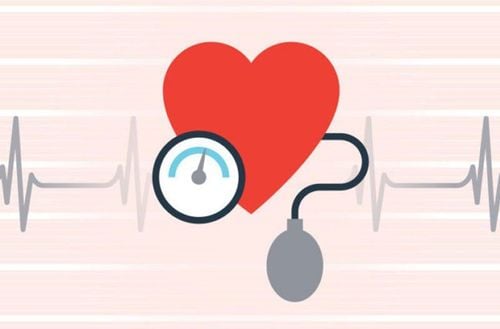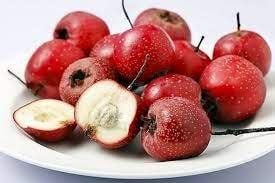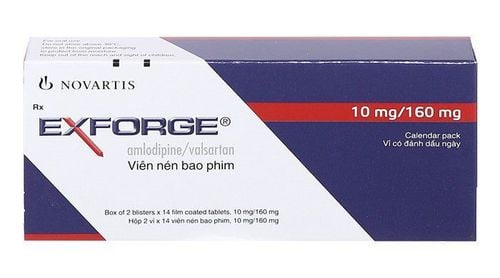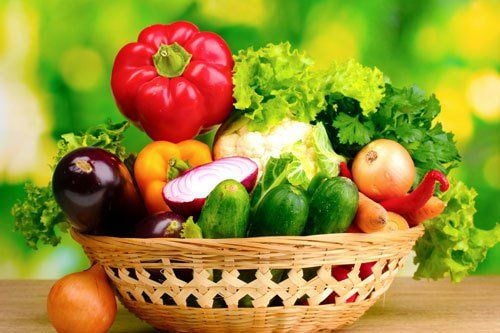High blood pressure is one of the most common risk factors for heart disease. The best way to manage this condition is to combine the use of appropriate medications with a healthy diet and lifestyle. Healthcare professionals suggest that adding certain herbs and spices to your daily diet can help you effectively lower your blood pressure, including basil, parsley, garlic, cinnamon, and especially ginger.
1. The Importance of Controlling High Blood Pressure
High blood pressure is generally defined as having:
A systolic blood pressure of 130 mm Hg or higher
A diastolic blood pressure of 80 mm Hg or higher
Elevated readings in both the systolic and diastolic pressures
High blood pressure can lead to serious health conditions, such as coronary artery disease, stroke, heart failure, or heart attack. Therefore, controlling blood pressure is crucial.
You can manage blood pressure with medications, such as calcium channel blockers and angiotensin-converting enzyme (ACE) inhibitors. Additionally, lifestyle changes and dietary modifications can also help lower your blood pressure and reduce your risk of heart disease.
Trắc nghiệm: Bạn có hiểu đúng về huyết áp cao không?
Huyết áp cao còn được gọi là kẻ giết người thầm lặng vì bệnh thường không có triệu chứng. Thiếu hụt kiến thức về huyết áp cao có thể làm cho tình trạng bệnh trở nên trầm trọng hơn. Dưới đây là những câu hỏi trắc nghiệm vui giúp bạn hiểu đúng về bệnh cao huyết áp.2. Does Eating Ginger Increase Blood Pressure?
Ginger is a versatile food that can be easily incorporated into many recipes. Moreover, ginger is also considered an effective remedy for treating a number of ailments.
For a long time, people have used ginger to improve many aspects of heart health, including cholesterol levels, circulation, and blood pressure. Some studies in both humans and animals have shown that consuming ginger can reduce blood pressure in several ways. Ginger acts as a natural calcium channel blocker and ACE inhibitor. Meanwhile, calcium channel blockers and ACE inhibitors are both medications used to treat high blood pressure.
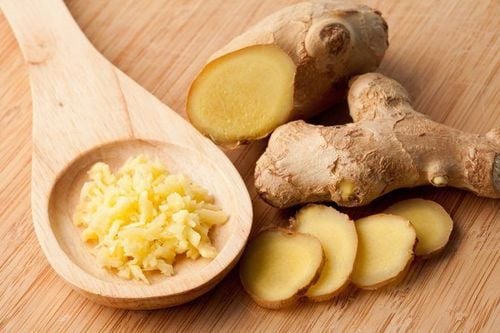
A study conducted on 4,000 individuals revealed that those who consumed the highest amounts of ginger (2-4 grams per day) had the lowest risk of developing hypertension.
However, for individuals with hypertension, consuming ginger or ginger tea during a hypertensive crisis is not recommended due to potential health risks. Specifically, consuming hot ginger tea can cause vasodilation and even rupture blood vessels in individuals with hypertension. In such cases, ginger is considered a stimulant that can further elevate blood pressure, leading to arterial rupture and an increased risk of stroke.
3. Some health benefits of ginger
Ginger has been utilized in various forms of Traditional Medicine for centuries. It is widely used to support the digestive system, combat common colds and flu, and alleviate nausea or vomiting.
Ginger contains a natural bioactive compound called gingerol, which possesses potent anti-inflammatory and antioxidant properties. Additionally, ginger has been shown to reduce nausea in individuals who have undergone surgery, chemotherapy, or are experiencing morning sickness during pregnancy.
Furthermore, ginger is a food that can effectively aid in weight loss and reduce belly fat. Consuming ginger water can promote feelings of satiety, thereby preventing cravings. To manage weight, one can incorporate a certain amount of ginger tea into their daily routine.
4. Other Herbs to Help Lower Blood Pressure
In addition to ginger, you can also use the following herbs to effectively control your blood pressure:
4.1 Basil
Basil is an herb with a wide variety of flavors. It is commonly used in alternative medicine due to its abundance of beneficial compounds. Basil contains a significant amount of eugenol, a plant-based antioxidant that effectively lowers blood pressure.
Studies have shown that eugenol can reduce blood pressure because it acts as a natural calcium channel blocker. Typically, calcium channel blockers prevent calcium from moving into heart and artery cells, helping to relax blood vessels. Some animal studies have also demonstrated that sweet basil extract can relax blood vessels and thin the blood, thereby effectively controlling blood pressure
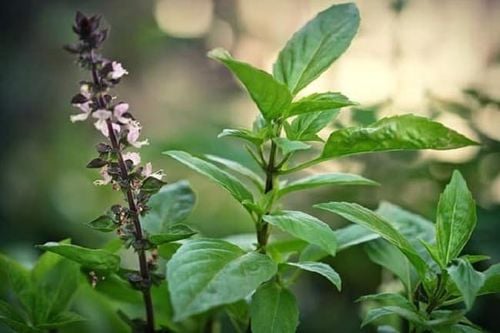
4.2 Parsley
Parsley is a widely used herb in European, American, and Middle Eastern cuisines. Originating from the Mediterranean, parsley boasts an impressive nutritional profile.
Parsley is rich in beneficial compounds, including vitamin C and carotenoids, which contribute to lower blood pressure. Studies have shown that the antioxidant carotenoid helps to reduce blood pressure and levels of LDL cholesterol, a risk factor for heart disease.
Animal studies have also found that parsley consumption decreases both systolic and diastolic blood pressure by acting as a calcium channel blocker, a type of medication that helps relax and dilate blood vessels.
4.3 Thyme
Thyme is another herb with a unique flavor and rich in beneficial compounds such as rosmarinic acid. This compound is effective in reducing inflammation, blood sugar levels, and increasing blood flow. Additionally, it helps lower high blood pressure by inhibiting the ACE enzyme.
Animal studies have shown that consuming thyme extract reduces risk factors for heart disease, such as total cholesterol, bad cholesterol, triglycerides, and high blood pressure.
4.4 Cinnamon
Cinnamon is a fragrant spice obtained from the inner bark of trees in the Cinnamomum genus. It has been used for centuries in Traditional Medicine to treat heart diseases and high blood pressure.
Several animal studies have shown that cinnamon can dilate and relax blood vessels. Another human study found that consuming cinnamon can reduce systolic and diastolic blood pressure by 6.2 mmHg and 3.9 mmHg, respectively.

Once you understand the benefits of ginger for blood pressure, you should consider using it appropriately based on your current health condition. Additionally, to effectively control blood pressure, you should maintain a healthy diet, lifestyle, and regularly monitor your blood pressure at home as advised by your doctor.
To arrange an appointment, please call HOTLINE or make your reservation directly HERE. You may also download the MyVinmec app to schedule appointments faster and manage your reservations more conveniently.
Reference source: healthline.com



